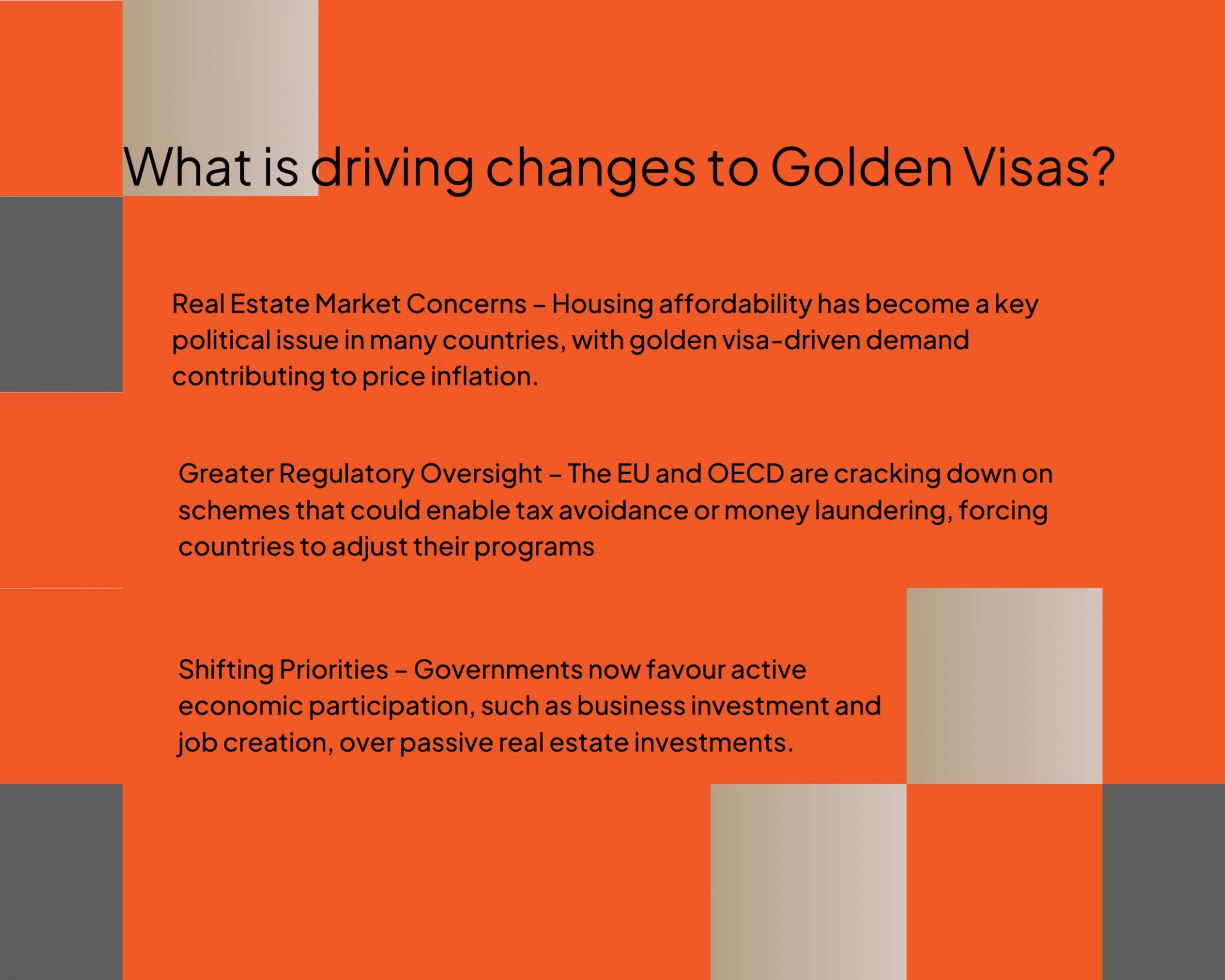Let’s take a closer look at some of the countries that have recently announced abolishing their Golden Visa programme or making significant changes to its operation.
Spain
Spain’s Golden Visa programme ends on April 3, 2025. Introduced in 2013, the programme allowed non-EU nationals to obtain residency by making significant investments in the country. Existing and pending applications submitted before the deadline remain unaffected, maintaining their renewal rights and benefits.
HNWIs interested in Spanish residency must now explore alternative routes. These include employment-based visas or the relatively new startup visa scheme.
Portugal
Spain’s neighbour Portugal also launched its Golden Visa programme in 2012 for non-EU nationals. But like many European countries with Golden Visas, this programme has also undergone changes, shifting the focus away from real estate investments as a path to residency.
As of 2025, Portugal’s Golden Visa programme no longer accepts real estate purchases or real estate-related funds as qualifying investments. However, one interesting amendment in 2025 allows applicants to begin the five-year citizenship process from the date of their initial residence permit application rather than from the approval date.
Greece
Like Portugal, Greece has shifted the focus from real estate to more productive investments like startups. Since the beginning of 2025, the minimum investment threshold for real estate increased in certain high-demand areas to €800,000. Other regions have a minimum investment of €400,000.
Ireland
Ireland abolished its popular Immigrant Investor Programme (IIP), often referred to as Ireland’s Golden Visa, in 2023. At the time, the Irish government cited security risks and a lack of economic contribution from visa holders as key reasons behind the decision. However, the country continues to offer a Startup Entrepreneur Programme as an alternative path to non-EU nationals.







